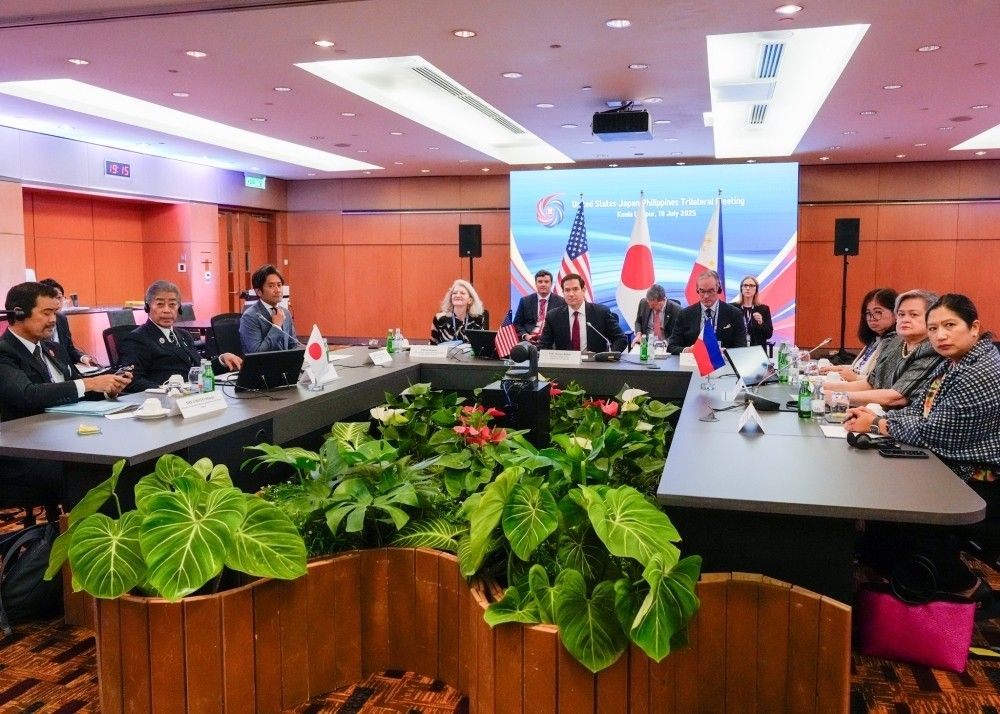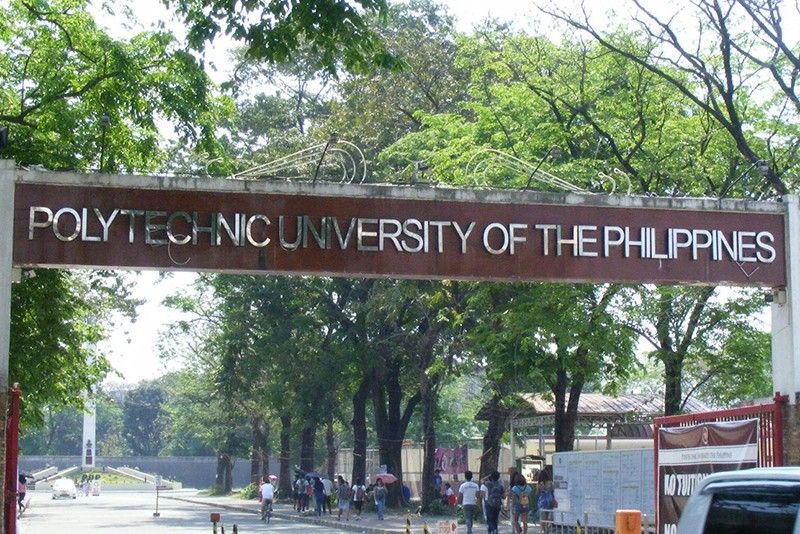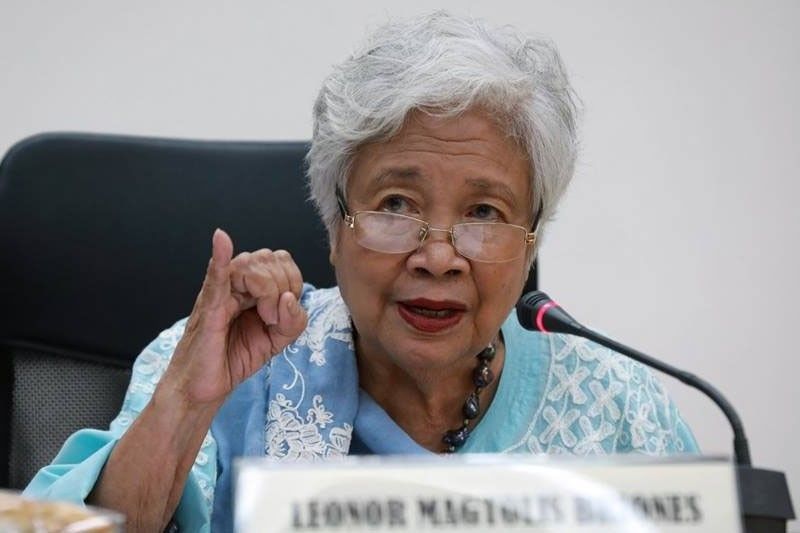
Upgrade to High-Speed Internet for only ₱1499/month!
Enjoy up to 100 Mbps fiber broadband, perfect for browsing, streaming, and gaming.
Visit Suniway.ph to learn
Cristina Chi - Philstar.com
July 11, 2025 | 11:43am
Foreign Affairs Theresa Lazaro meets with Japan's foreign affairs minister Iwaya Takeshi and US Secretary of State Marco Rubio, July 10, 2025.
Japan Ministry of Foreign Affairs
MANILA, Philippines — The Philippines, United States and Japan reaffirmed their commitment to maintaining peace, stability and freedom of navigation in the South China Sea under their trilateral partnership during a meeting of the countries' foreign ministers Thursday, July 10.
Foreign Affairs Secretary Theresa Lazaro also thanked United States Secretary of State Marco Rubio and Japanese Foreign Minister Iwaya Takeshi for their "enduring support" for the Philippines' position in the South China Sea during the trilateral talks on the sidelines of the ASEAN foreign ministers' meeting in Kuala Lumpur, Malaysia.
This is the first time that these specific foreign ministers had convened together, with Iwaya and Rubio congratulating Lazaro on her recent appointment to the post.
The three-way talks vowing to safeguard freedom of navigation in the South China Sea took place weeks after Beijing, in a show of expanding military reach, deployed two aircraft carriers into the Pacific Ocean for joint drills — the first time its flat-tops have operated thousands of miles from home.
Arbitral award anniversary approaches
The meeting was held just two days before July 12, which marks nine years since the South China Sea Arbitral Award that invalidated China's sweeping territorial claims in the resource-rich waters.
The three sides reiterated their opposition to attempts to "unilaterally change the status quo by force and coercion" and reaffirmed the importance of respecting the rule of law," according to a readout by Japan's foreign affairs ministry.
China has ramped up its assertiveness and continued to deploy its Navy and Coast Guard vessels to reinforce its sweeping claims to nearly the entire South China Sea.
The Department of Foreign Affairs (DFA) said in a statement that Lazaro described both the US and Japan as "indispensable partners" in boosting the Philippines' defense posture.
"Secretary Lazaro highlighted that the Philippines continues to regard the United States and Japan as indispensable partners in enhancing the Philippines’ defense and security capabilities," the DFA said.
"She expressed appreciation for the United States and Japan’s enduring support for the Philippines’ position in the South China Sea and the United States’ steadfast commitment to the Mutual Defense Treaty," it added.
Lazaro expressed willingness to host the next trilateral maritime dialogue in Manila later this year, which both Rubio and Iwaya welcomed.

Foreign Affairs Theresa Lazaro meets with Japan's foreign affairs minister Iwaya Takeshi and US Secretary of State Marco Rubio, July 10, 2025.
Japan Ministry of Foreign Affairs
Economic cooperation
The trilateral talks also focused on the three countries' plans to cooperate more on the Luzon Economic Corridor that will link Subic, Clark, Manila, and Batangas, which will "shift the gravity of economic development beyond the National," the DFA said.
Lazaro also thanked the US for its $3.8 million funding for the pre-feasibility study of the Subic-Clark-Manila-Batangas railway — a project that China had previously agreed to support but later withdrew from.
The three countries' top diplomats also discussed deeper cooperation in cybersecurity capacity building and workforce development.
In a press conference later that day, Rubio said the trilateral meeting "was excellent" and that he looked forward to hosting President Ferdinand Marcos Jr. in Washington "in a few days."
"We have a great relationship with Japan and the Philippines, and work very closely with them on the economic corridor, on maritime security, and territorial integrity," the US Secretary of State said.
Trump admin to focus on Indo-Pacific
During the broader ASEAN-US ministerial meeting, Rubio expressed enthusiasm about working with the Philippines as it prepares to assume the ASEAN chairmanship next year.
The Secretary of State stressed that the Indo-Pacific remains central to US foreign policy, saying that "the story of the next 50 years will largely be written here in this region."
Rubio also delivered pointed remarks about Southeast Asian nations' independence, stating that Washington views ASEAN countries as "sovereign, independent states" that maintain partnerships "without seeking the approval or permission of any other actor in the region or the world" — comments that could be interpreted as directed at China's growing influence in Southeast Asia.

 6 hours ago
3
6 hours ago
3



